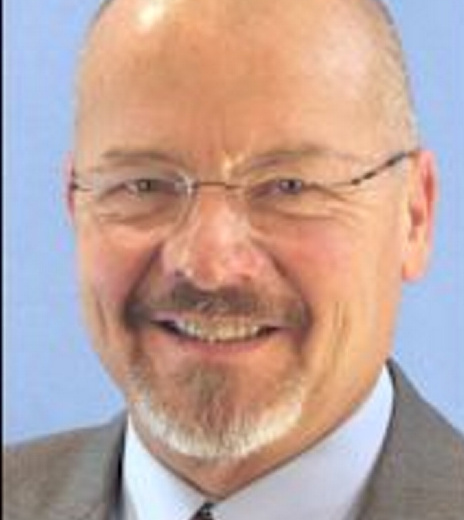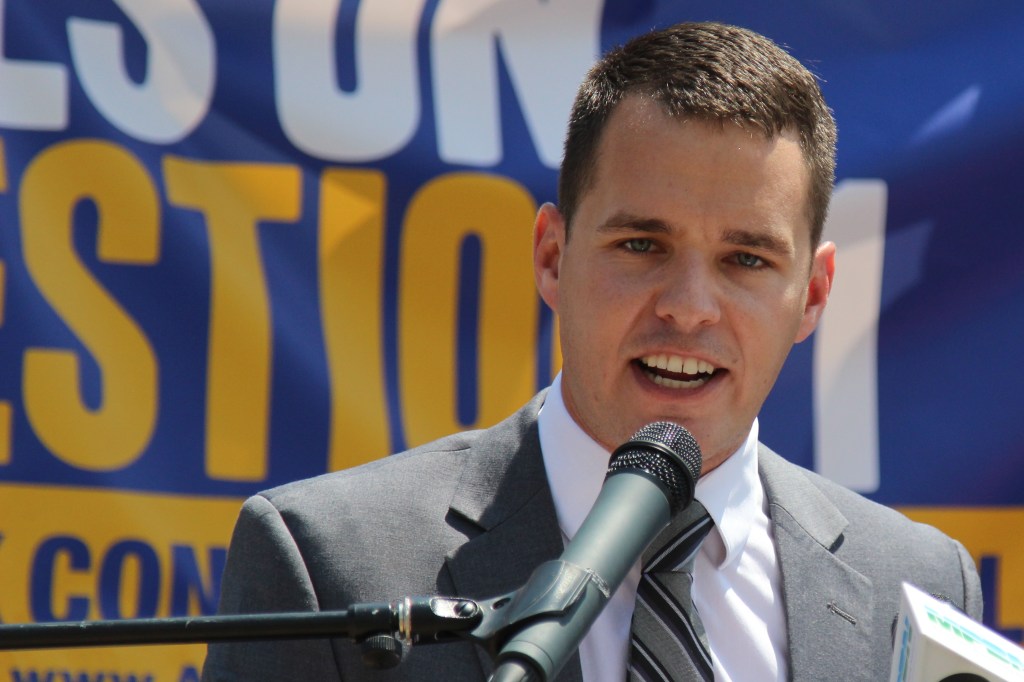Maine voters will decide on three referendum questions this November, including one initiative to expand a public campaign-financing system used by most legislative candidates but decried as “welfare for politicians” by opponents.
Question 1 on the Nov. 3 ballot seeks to revive Maine’s public campaign-financing system several years after a U.S. Supreme Court decision undercut a key part of the program in Maine and other states. But in addition to increasing funding for so-called Clean Election candidates, Question 1 would require organizations to disclose the three top donors on political ads and stiffen penalties for campaign finance violations.
Mainers also will be asked whether they support two bond issues: $85 million for transportation projects such as road construction, bridge repairs and railroad infrastructure investments, and $15 million to help pay for the construction of new energy-efficient affordable homes for low-income seniors, as well as the repair or weatherization of the homes of low-income seniors.
But Question 1 is the highest-profile issue in this off-year election.
The campaign is being spearheaded by the organization Mainers for Accountable Elections, which portrays the initiative as a way to reduce the influence of outside groups or well-funded special interests on Maine elections.
“There is a lot of cynicism out there about money in politics,” said Andrew Bossie, a leader in Mainers for Accountable Elections and executive director of Maine Citizens for Clean Elections. “This is an opportunity to once again show that we can fight back and fight for government that is beholden to us and not beholden to special interests and high-priced lobbyists.”
At the center of the debate over Question 1 is a voter-approved law from 1996, the Maine Clean Election Act, which created the state’s public campaign-financing system for those running for the Legislature or governor’s office. Candidates choosing to participate in the system receive public financing in exchange for agreeing to forgo receiving private donations after being certified as Clean Election candidates. Until a few years ago, candidates were able to receive additional Clean Election funding on top of an initial disbursement in order to match the amount raised by their privately funded opponents. But the U.S. Supreme Court struck down such matching fund programs as unconstitutional.
In 2008, 85 percent of Maine legislative candidates participated in the public financing program. That number was down to 51 percent last year in part because of the Supreme Court ruling.
Question 1 would increase the initial disbursement to candidates and increase from $2 million to $3 million the amount earmarked for the Maine Clean Election Fund annually, paid in part by eliminating corporate tax breaks. It also would increase penalties for campaign finance violations and require disclosure of the top three donors to an organization that buys political ads.
But Maine’s public campaign-finance system has come under fire repeatedly in recent years by some lawmakers and Gov. Paul LePage, a Republican who has tried to defund the program and recently called Question 1 “the biggest scam on Maine people.” Last week, a new group calling itself Mainers Against Welfare for Politicians began actively campaigning against Question 1.
Rep. Larry Lockman, R-Amherst, called Question 1 “the biggest example of welfare for politicians in Maine history” and said it could significantly increase the amount of taxpayer dollars spent on campaigns. Instead, Lockman said, the state needs to put more money toward helping nursing homes, reducing the MaineCare waiting list for the elderly or disabled, or taking care of other vulnerable people.
“It borders on scandalous that anybody would propose taking scarce money out of the General Fund to spend on robocalls, negative ads and lawn signs,” said Lockman, who ran his first campaign in 2012 as a Clean Election candidate but now says he regrets the decision. “Every dollar from the General Fund that goes to fund political campaigns is one less dollar for all of these urgent needs,” he said.
Question 1 supporters accuse Lockman and other critics of using the politically charged word “welfare” in order to turn the public against a program that has enjoyed broad bipartisan support in the past. Bossie said he believes “Maine people see beyond that” and support a program that he says allows candidates to run campaigns focused on issues rather than fundraising.
“What Clean Elections allows us to do is have a Legislature that works for us,” Bossie said.
Mainers for Accountable Elections had raised more than $1.2 million in support of Question 1 through Sept. 30, according to the most recent campaign finance reports filed with the Maine Commission on Governmental Ethics and Election Practices. Although many donations were for $50 or less from people in Maine and around the country, the organization has received $120,000 from the group Every Voice in Washington, D.C., and $350,000 from the Proteus Action League in Massachusetts, both of which are active on progressive issues.
Mainers Against Welfare for Politicians had not yet filed a campaign finance report with the ethics commission, although Lockman indicated it had raised roughly $30,000 so far.
Send questions/comments to the editors.





Success. Please wait for the page to reload. If the page does not reload within 5 seconds, please refresh the page.
Enter your email and password to access comments.
Hi, to comment on stories you must . This profile is in addition to your subscription and website login.
Already have a commenting profile? .
Invalid username/password.
Please check your email to confirm and complete your registration.
Only subscribers are eligible to post comments. Please subscribe or login first for digital access. Here’s why.
Use the form below to reset your password. When you've submitted your account email, we will send an email with a reset code.